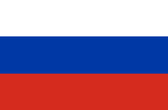
Call 0330 880 3600 Calls may be monitored or recorded. Opening Times.
- TRAVEL INSURANCE
- COVID-19 COVER
- More Options
- Help & Advice
- Existing Customers

Call 0330 880 3600 Calls may be monitored or recorded. Opening Times.

Need help?
UK Customer Services0330 880 3600*
Open Monday to Friday 9:00am to 6pm, Saturday 8:30am to 4pm and closed Sundays.
*Calls are recorded for training and quality purposes.
Other Guides

Official name: Russian Federation
Capital city: Moscow
Languages spoken: Russian
Population: Around 144 million
Currency: Russian ruble (RUB)
Time zone: GMT+2 to +12
Driving side: Right
Climate: Vast and varied - from Arctic tundra to continental climates with long, cold winters and short, warm summers
Russia, the world’s largest country, stretches across Eastern Europe and northern Asia, encompassing eleven time zones and diverse landscapes. It is known for its cultural heritage, from the historic cities of Moscow and St. Petersburg with their golden domes and imperial palaces, to its contributions in literature, music, and art. Beyond the urban centres lie Siberian wilderness, Lake Baikal - the world’s deepest freshwater lake - and the volcanic Kamchatka Peninsula.
The political situation remains sensitive due to Russia’s invasion of Ukraine in 2022, with ongoing conflict and significant international sanctions. Relations with many Western nations are strained, and travel is affected by restrictions and heightened risks. Travellers should check the latest FCDO guidance before making any plans.
Covering more than 17 million square kilometres, Russia borders fourteen countries including China, Kazakhstan, Ukraine, and Finland. The Ural Mountains traditionally divide Europe and Asia. Landscapes range from endless taiga forests and steppe plains to mountain ranges such as the Caucasus. The country has Arctic coastlines in the north and Black Sea resorts in the south, showcasing its immense geographical diversity.
Moscow and St. Petersburg are the primary entry points, served by Sheremetyevo, Domodedovo, and Pulkovo airports. Domestic flights connect the vast territory, with Aeroflot and other carriers linking remote regions. Russia’s rail system, including the Trans-Siberian Railway, remains an iconic way to travel, though journeys can be long. Driving can be difficult outside major cities due to poor road conditions and long distances. Current sanctions have disrupted international flights and banking services, making travel more complicated than in the past.
UK citizens and most foreign nationals require a visa to enter Russia. Applications must typically be made in advance with an invitation from a Russian host, business, or hotel. The process can be lengthy, and additional restrictions have been introduced in recent years. Many embassies have reduced or suspended services due to strained diplomatic relations, so travellers should confirm requirements before attempting to visit.
The Russian ruble (RUB) is the national currency. International sanctions have limited the use of foreign-issued credit cards, making cash essential. Currency exchange services operate in cities, though restrictions apply to foreign currency transactions. Prices vary greatly: Moscow and St. Petersburg are relatively expensive, while rural areas remain much cheaper.
Healthcare quality varies widely. Large cities like Moscow and St. Petersburg have hospitals of a good standard, but facilities in rural areas may be under-resourced. Comprehensive travel insurance is strongly recommended, particularly as private medical treatment and evacuation can be extremely costly. Pharmacies are common in cities, but availability of Western medicines may be restricted. Tap water safety varies — bottled water is a safer option throughout the country.